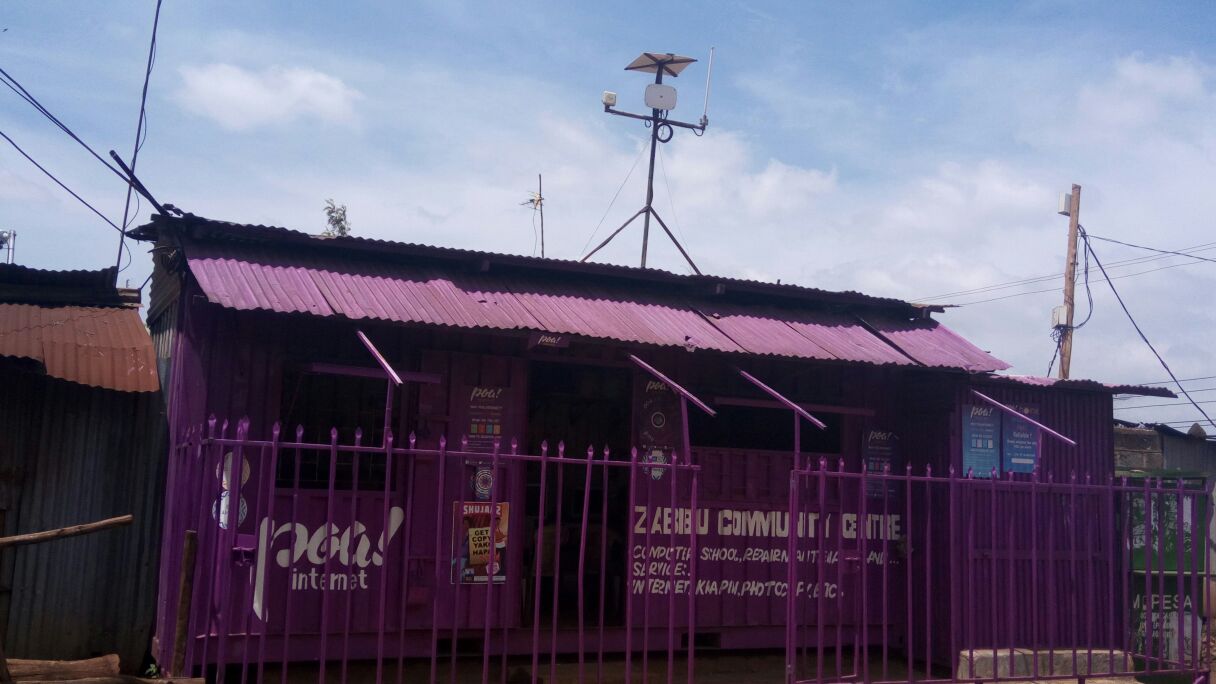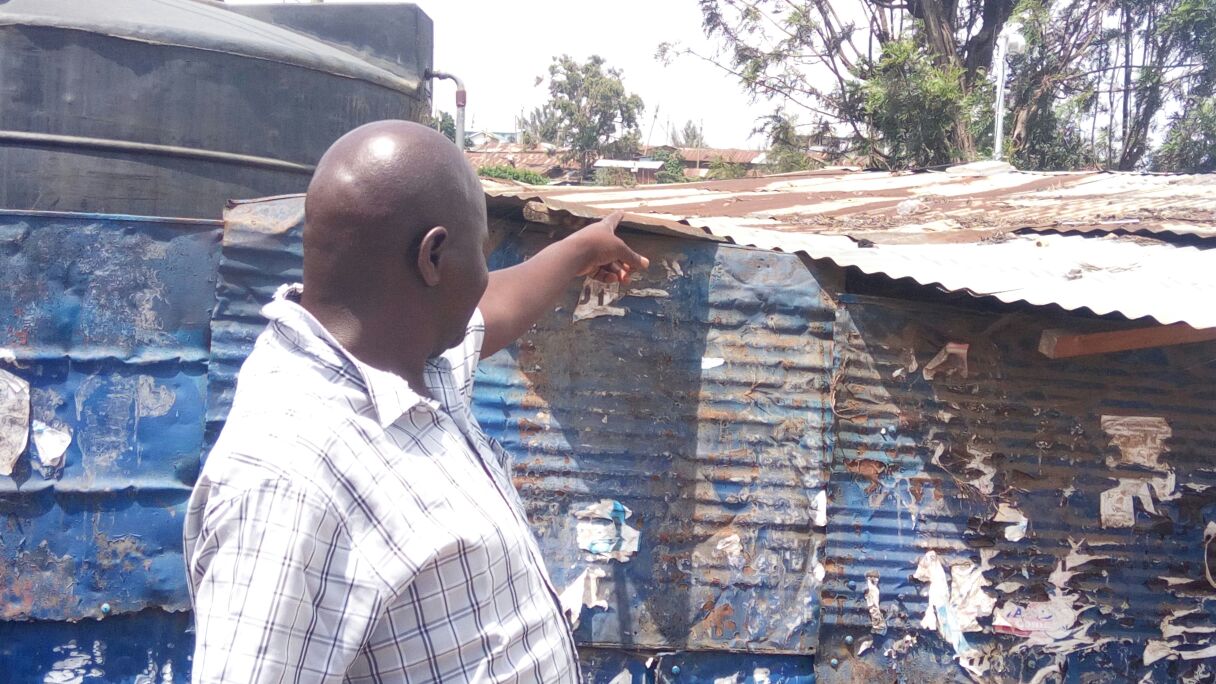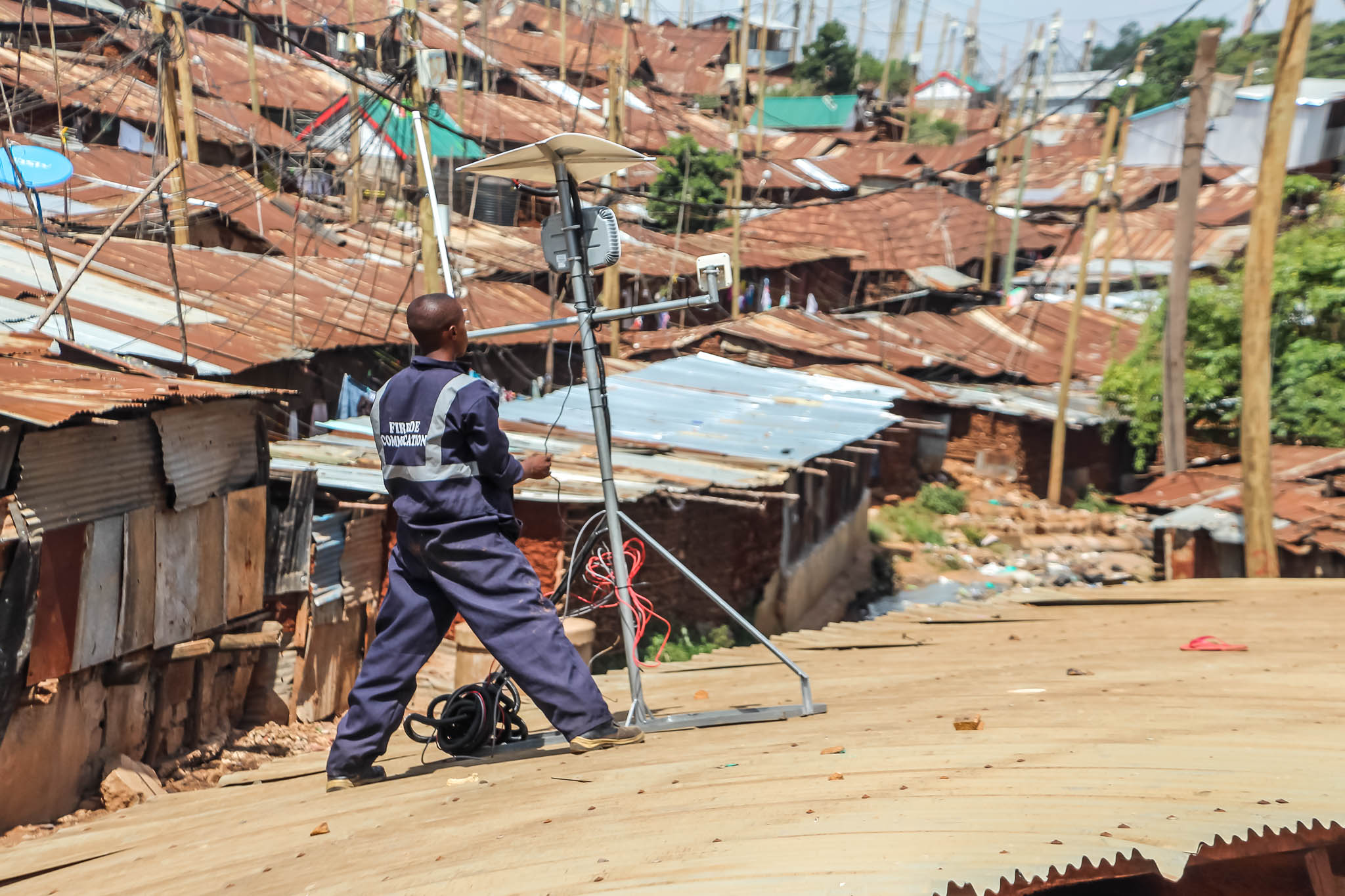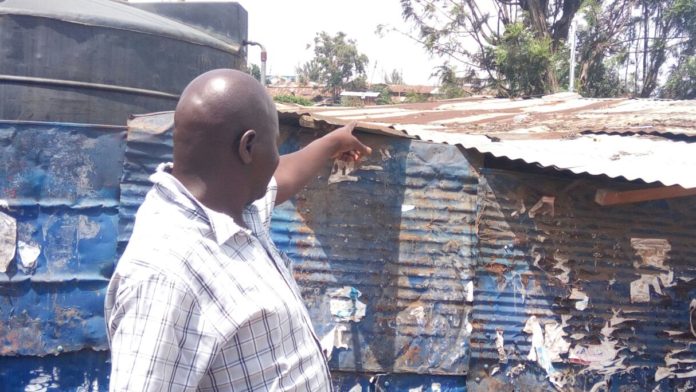|
Getting your Trinity Audio player ready...
|
By Clifford Akumu
Alfred Ouma 35, still remembers the gunshots that rent the air in Kibera slums, Nairobi-following the twin elections of August 8 and November 26 this year.
When the gunshots fell silent, it left in its wake, pain, destruction, and loss of business valuables.
Slowly businesses are picking up. Slowly people from different communities are mingling once again. Slowly people are littering the streets speaking in low tones oblivious of their next move.
Kibra, Kawangware and Mathare slums in Nairobi endured the worst cases of violence after the 2017 prolonged electioneering period.

Mr Ouma, chairman of Zabibu Community Centre, in Kibra’s Olympic area is hanging on his “determination of raising entrepreneurs in Africa’s second largest slum” amid the political aftershocks.
The center offers training on computer hardware, software and is dedicated to working with children, young adults and communities to overcome poverty and unite the community in peaceful coexistence.
The center also offers printing, scanning, photocopying and typing services for the residents.
When we visited his computer class, only one student had turned up.
“Most of our students have since moved to other estates due to the ongoing political tension in this area. As for me, I have to pursue my passion of nurturing entrepreneurs from this slum and fostering a peaceful co-existence,” says Ouma adding that political activities has chocked his business.
Most of the businesses in the slums are slowly picking albeit at a tense pace thanks to the cloud of political stalemate that still engulf the country.
“Our services at the centre has really reduced due to political tension in this part of Kibra. In this area you are never sure of anything, so as business people, we are always alert,” says Ouma.

However, all hope is not lost.
A new initiative by Internet Service Provider(ISP), poa! Internet dubbed ‘community internet’ is changing livelihoods in the slums and boosting the likes of Ouma’s business income.
Kenya’s slum dwellers are now moving online in their thousands, helping to equalize one of the greatest digital divides in Africa, between the connected and the unconnected.
poa! internet, which provides low cost community internet across Kenya’s slum areas, has enabled Zabibu Community Centre empower the youth by encouraging entrepreneurship and self-reliance.
With approximately 200,000 smartphone users and home to around 1 million low-income residents, Kibra slum presents a fertile ground for digital revolution.
The ISP’s unique model has achieved monumental revenue growth of over 400 per cent since the beginning of this year.
“Our mission from the outset is to move the country’s lowest income communities online, comprehensively and pervasively” says Andy Halsall, Chief Executive Officer at poa! Internet.
In 2016, his life changed after meeting two officials from poa! Internet who were promoting their services in the slum.
“They were looking for where they can put their mast. I ask them are you going to put it tomorrow,” Ouma recalls how the centre got connected.
With unlimited internet connectivity, Ouma explains, the centre’s services will row back to life again.
“They started by giving us 20 GB and we would buy the rest in case we needed more bundles. Soon, they moved to 25G. Now we are on unlimited internet bundles throughout,” he explains.
When fully operational, the centre consumes between 30-40GB internet bundles monthly.
Some 53 per cent of poa!’s subscribers currently buy the 1-hour data plan for Sh10 an hour while 45 per cent buy the poa! daily 24-hour plan for just Sh50.

“We also believe that by offering completely unlimited internet within these communities, we open new possibilities in the local institutions that are hosting our hotspots in accessing teaching materials and online research,” says Halsall.
Ouma’s story is that of determination and passion.
During the post-election violence that rocked the country in 2007-2008, the soft-spoken entrepreneur lost his certificates but never gave up.
He enrolled again with Institute of Advanced Technology(IAT) to complete his Certificate in Business Information Technology and got the degree in 2016.
Back in 2005, he landed his first job with Hands of Love Society-a Non-Governmental Organisation based in the slum as a computer teacher.
Things took a new turn when in 2010, Hands of Love wound up and was acquired by another NGO Catholic Life Community Centre(CLC).
But, there were students who needed to finish their respective courses. And so, in June the same year, out of the passion to create next generation of entrepreneurs, Zabibu Community Centre was born.
“We started with 3 computers, the two were for repairs and one was personal one and a total of ten students. We teamed up with other three people, we then registered this as an NGO.Used my dues from my first job to buy the shelves and the tables,” he remembers.
He continues: “Another organisation Saint Vincent De Paul offered us a shelter at their premises for some time”
“All the students were banking on me to help them finish their course, the community we are, also brought a burden to me. I had to stick with them to fulfil my passion amid lack of funding .”
A year later the centre would get funding from a UK-based Catholic Church under the ‘Saviour Project Kenya’ that they used to rent a bigger room.
“The place was hidden; We wanted to diversify our services and so this funding came in handy” he says.
The ISP has moved its entire pricing model to unlimited time bundles, now offering hourly, daily, weekly, and monthly unlimited usage.
Few metres away in the sprawling Katwekera, Kibra slum, Mr John Ogonda’s two sons are enjoying every moment of their studies.
Ogonda,47, who works as a casual labourer at Tafakari Centre, Mama Okinda Unit-Sarang’ombe Ward is now able to save Sh24,000 per month which he used to pay as hostel fee for his sons.
His two sons studying at Strathmore University used to pay Sh12,000 per month for hostel where they could access uninterrupted internet connectivity to help them in their studies.
Today, he only pays Sh1500 per month and the internet connectivity is unlimited serving him and his sons.
He thanks his sons for coming up with the brilliant idea of sourcing for an alternative service provider after the one they approached declined their request.
“One of the providers we approached only said they can reach Olympic area, and so we tried Poa Internet whom responded positively.” says Ogonda with a smile.
The two sons, on their second year, studies Actuarial and Computer Science respectively.
Since I joined the service, I only give each of my sons Sh350 as pocket money every day to school.
He explains his house has now become a ‘cyber’ helping his sons’ friends and other students from the area hence fostering unity.
The quick response by the poa internet team, he explains, has made enabled him connected even when there is slight disturbance with the connection.
“The team has been constantly rectifying any network issues. I also pay at discounted price whenever I am experiencing problems with the network,” notes Ogonda.
In addition, the ISP has also created jobs for over 60 people from Kibra and Kawangware slums.
“We also focus on employing people from these same areas to create new jobs as well, in areas where unemployment currently stands at 50 per cent or more,” adds Halsall.
In Kawangware slums, Kelvin Kantai,27, a professional hair stylist who has also benefitted from the slum internet programme, is worried about his prospects of cashing in on the festive season thanks to the political uncertainty.
Kantai ponders how the peak season of December will pan out.
In a good week, he nets 3-4 new clients through his online marketing platforms.
“I use the internet to advertise my services on my Facebook page and Instagram. But, business has been affected by politics. By now I would have made a lot of cash considering it is festive season,” he explains while attending to a customer at Yaya Centre, Kilimani area.
Through the programme, Kantai has also learnt new styles that has made him a cut above the rest in the area.
With the hope that his client base will rise, Kantai plans to sign for 5-10Mbps to enable him satisfy his customers’ needs.
“I have benefited enough with the unlimited internet provision and would like to move to more Mbps to satisfy my customers,” says Kantai.
But Ouma has now put his focus on training more than 500 youths in the slum on entrepreneurial skills in the next few years.
“My mission is to train more youths on alternative sources of wealth creation and promote peaceful co-existence in the slums” he concludes.














